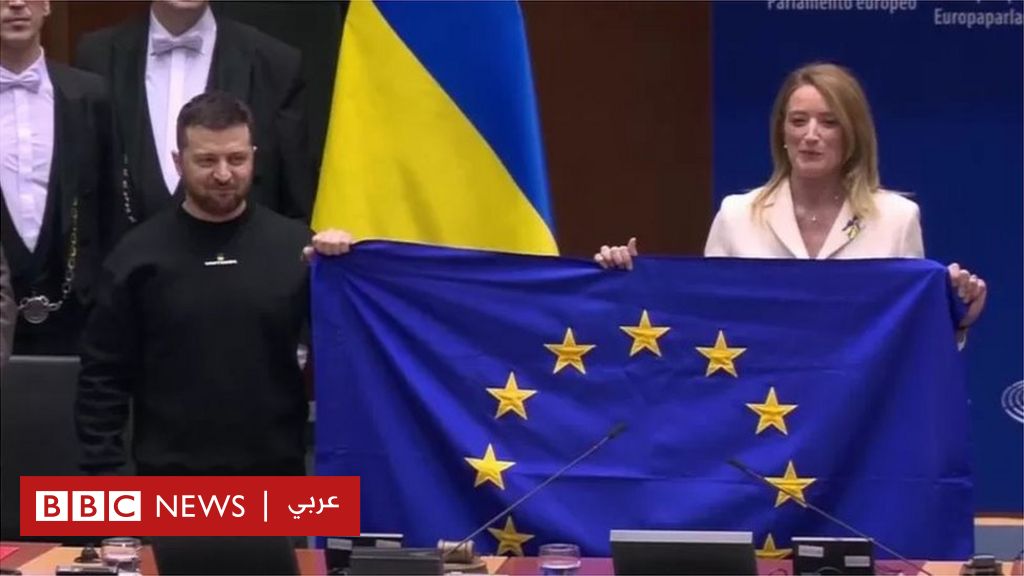The European Union approved a new package of sanctions against Russia, after consultations that continued until the last moments, according to a statement issued by the rotating presidency of the Union, which Sweden currently holds.
“Together, the members of the European Union have agreed to impose new sanctions, the most severe and far-reaching, to assist Ukraine in the war,” the statement said.
“The European Union stands united with Ukraine, and the Ukrainian people, and we will continue to support Ukraine for as long as necessary,” the statement, posted on Twitter, added.
The new sanctions package includes harsher restrictions on exports, with regard to dual-use goods, in addition to sanctions on institutions that support the war, publish Russian propaganda, or supply parades used by Russia.
“What was required here was to send a message of our unity and solidarity with Ukraine on this special day,” said a diplomat who attended the secret meetings of member states and the negotiations that took place during them.
The new package of sanctions is the tenth against Russia, since the beginning of the war last year, and they were all designed to reduce Russia’s capabilities to finance its war in Ukraine, and to deprive Moscow of the necessary technical equipment, spare parts required for the maintenance of military equipment, and weapons.
The new package included measures targeting personalities that the West says promote Russian propaganda, other personalities that Ukraine accuses of transporting Ukrainian children to Russia, and personalities responsible for producing Iranian marches that Russia uses in the war.
The package also targeted a number of banks, including private banks – such as Alfa Bank and Tinkoff Digital Bank – and they were excluded from the SWIFT system for bank transfers, thus reducing the volume of intra-regional trade between Russia and European Union members by about 10 billion euros.
Do sanctions hurt Putin?
Analysis by Sarah Rainsford – BBC correspondent in Eastern Europe
Are there any signs that the sanctions will turn a section of the Russian elite against Putin?
It is not clear what will change in the long road to Putin’s calculations, as he is the only person driving it.
The invasion was Putin’s grand plan, drawn up with little consultation, and without any honest judgment, by, as we know, people close to him.
They feel afraid to tell him the truth, so personalities who secretly reject war, including government ministers, continue their work that supports the continuation of the invasion, and may openly justify and encourage war.
Although Russia did not win the war as quickly as Putin expected, he will likely get more involved in it than withdraw from it.
I think it’s easy to say that Russia’s rich people, who used to have fun shopping in London or skiing in Italy, are not satisfied with having their assets frozen and banning them from traveling to the West.
Even leaving or entering Russia these days is difficult for them, but what can they do? It’s quite another matter.


